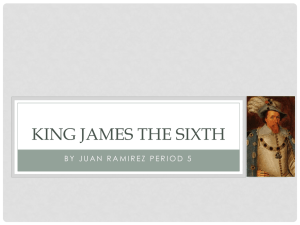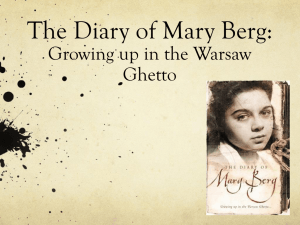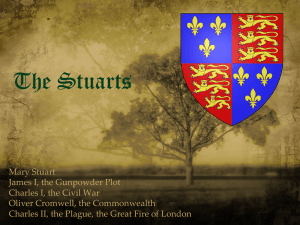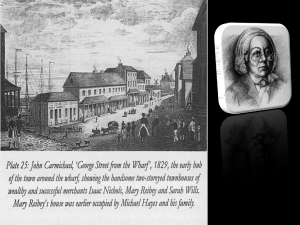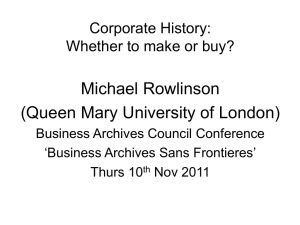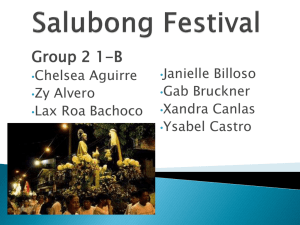Mary I - WordPress.com
advertisement
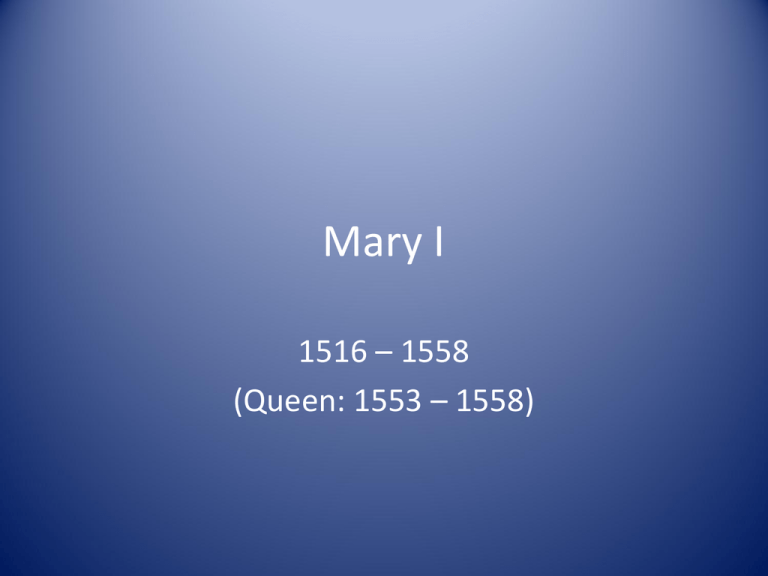
Mary I 1516 – 1558 (Queen: 1553 – 1558) Overview • • • • • • The daughter of Henry VIII and Katherine of Aragon Edward’s Regency Council attempted to prevent her from taking the throne but the English people remained loyal to the Tudor dynasty and refused to support Lady Jane Grey Mary was a strong Catholic and attempted to reverse the Protestant Reformation in England. The Marian Counter-Reformation was a time of persecution for Protestants and gained Mary the nickname ‘Bloody Mary’. Mary married Philip, King of Spain , in 1554 but the marriage was childless. Mary suffered a phantom pregnancy in 1555. Although initially popular her religious policy, linked to her marriage to a Spaniard, an unsuccessful war in France, and poor harvests made her very unpopular by the end of her reign. In 1557 Mary believed herself to be pregnant. Instead it was likely she was suffering from uterine cancer. In 1558, weakened by this illness she died most likely of influenza The Marian Counter-Reformation • Mary reversed all the religious laws and changes which Edward and Henry had introduced. Catholicism was returned to England. • Mary could only achieve this with the support of Parliament, and this was only possible once she had agreed not to demand that the monastic lands be returned by the Gentry who had bought them. • Many prosperous Protestants fled overseas. Others, like Cranmer and Latymer, were arrested, tried for heresy and burned at the stake. During her reign 283 Protestants were executed in this manner. • Protestantism became a persecuted belief, with many Protestants worshiping in secret. The persecutions were very unpopular, even with confirmed Catholics. Mary’s marriage policy • 1554 Mary married Philip a Prince of Spain. • This marriage was very unpopular with the English people. Wyatt’s Rebellion broke out in Kent in an attempt to stop it. Parliament (who wanted her to marry an Englishman) imposed restrictions on the marriage, namely that Philip could not inherit the throne if Mary died first. • The marriage was also unpopular in Spain ~ England was seen as backward and uncivilised. • Mary loved Philip very much. For Philip the marriage was purely political ~ to gain an alliance for Spain in her war against France. Mary’s marriage • In 1554 Mary believed that she was pregnant. • In 1555 it was clear that she had suffered a phantom pregnancy. • In disgust Philip left to take command of the Spanish armies occupying Holland. He did not return until 1557. • Mary fell into a deep depression over this matter. • In 1557 Mary again declared that she was pregnant ~ it was likely that she was suffering from uterine cancer. This caused her great pain and weakened her considerably. Philip was not in England when she died. Mary’s Foreign Policy • Mary’s marriage to Philip brought England into Spain’s war with France. • This led to a plot by the French to assassinate Mary and invade England in 1556 (the Dudley conspiracy). • In 1557 England declared war on France. The war was expensive and very unsuccessful, with the last English bases in France lost to the French. Mary’s economic policy • Throughout Mary’s reign England suffered very poor harvests due to very wet weather • Mary attempted to stimulate foreign trade by opening up new trade routes with Russia but this was generally unsuccessful. • War with France disrupted trade to Europe • Although England was allied with Spain, she would not share her very valuable trade to the New World. The Succession • When Mary died without an heir the options available to take the throne were: her halfsister Elizabeth; Philip, King of Spain. • Both Parliament and the people generally were not prepared to accept a Catholic foreigner as their King and therefore Elizabeth was the only logical choice.



